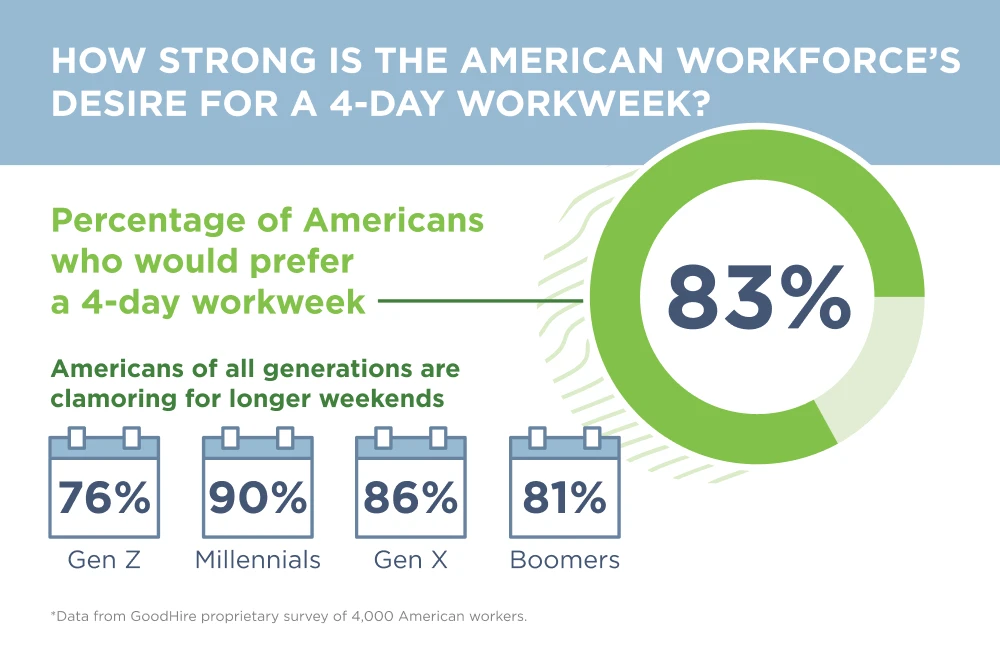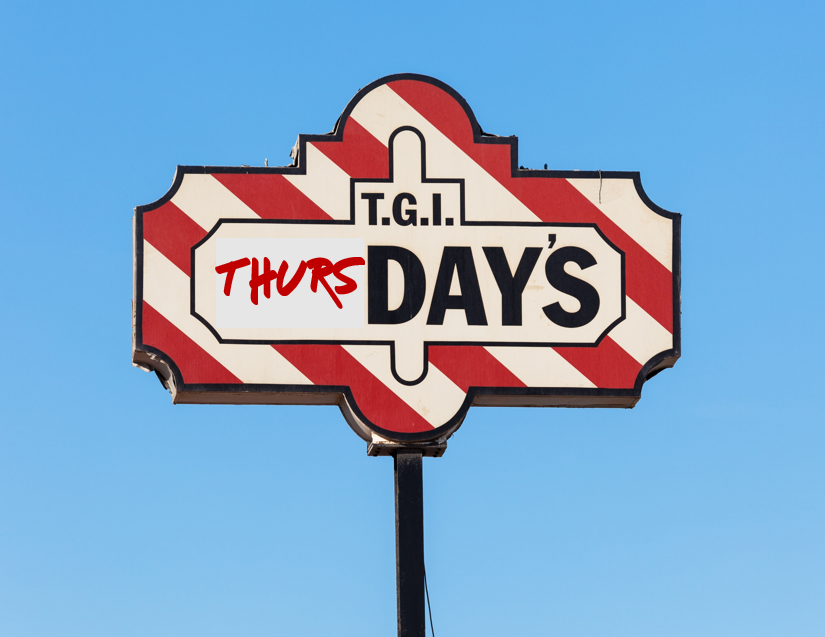
The words on everybody’s lips in radio – bots included – are Artificial Intelligence and ChatGPT. And for good reason. Algorithmically generated voice and speech are game-changers for an industry built around written content and speech.
Every time a new technology hits the main stage in our world, we ask the same question:
“Is it good for radio?”
And while AI chat and a new wave of smart bots are daunting and more than a little discomforting, we simply do not know the full extent of their impact. A look back at past technological changes proves that.
Some innovations become a threat or even a disruptor. Satellite radio, streaming, and podcasts fall into that category. Others simply blow by, unable to find footing. Apps like Foursquare and Clubhouse were at one time looking promising and perhaps even game-changing. But neither could even reach the Act II stage.
But today’s post is not about ChatGPT or its derivatives and spinoffs. Seth and I have written about this fast-rising technology in recent months, and a lot of just the past few weeks. It’s for real, that’s for sure. And it looks like most businesses are going to be impacted, from Amazon to that nail salon on Main Street.
Just like the Internet, it could very likely affect how we all do business. And every company owner and brand manager will have to work through its applications, its sand traps, and its advantages. All three will exist simultaneously.
But today’s post is blessedly not about AI, but instead, a sneakier societal change not just on the horizon. It might already be here.
The 4-day workweek
Although it isn’t a technology, it threatens to have a major impact on our lives, our jobs, and in the case of radio, the content we create and how it’s marketed.
 For context, you may wonder how the 5-day workweek came about. It was initiated by Henry Ford at the dawn of the auto revolution in this country – in 1926 to be exact. And within that 5-day construct, three 8-hour shifts were created to keep those assembly lines humming and the Model T’s rolling around the clock.
For context, you may wonder how the 5-day workweek came about. It was initiated by Henry Ford at the dawn of the auto revolution in this country – in 1926 to be exact. And within that 5-day construct, three 8-hour shifts were created to keep those assembly lines humming and the Model T’s rolling around the clock.
Nearly 100 years later, our Monday-Friday routines are being disrupted. In fact, Axios writer Erica Pandey tells us that already, 22 million American workers are toiling less than 35 hours a week. Most are doing so out of choice, because the jobs are certainly plentiful.
In “America chips away at the 40-hour workweek,” Pandey notes the pandemic drove this trend. Millions used the disruptive forces of COVID to reassess their work-life balance and the meaning of their careers.
The trend actually had already started by the time we started masking up and social distancing. Many companies had initiated “Summer Hours” and “Casual Fridays,” rule-benders that began to weaken the grip of the 5-day workweek.
Like so many things, COVID accelerated a trend that was already well underway. And last week – out of the blue – Bernie Sanders fired off the tweet that served as a water cooler topic – that is, if there’s actually anyone left talking around the water cooler:
With exploding technology and increased worker productivity, it’s time to move toward a four-day work week with no loss of pay. Workers must benefit from technology, not just corporate CEOs.https://t.co/mIm1EpcZLu
— Bernie Sanders (@SenSanders) February 21, 2023
As we well know in radio, listening is a routine. It’s habitual. And when those traditions are rocked or disrupted, it has a ripple effect on usage – and the foundation of the industry.
We saw this big-time during COVID when millions began to work out of the home, clearing out the highways and byways. Even in the biggest metros, traffic reports were rendered near irrelevant due to low volumes of commuters.
And thanks to a stubborn workforce, many of whom would much prefer to WFH, morning and afternoon drive listening levels haven’t returned to some semblance of “normal.”
But the prospect of an official 4-day workweek at least provides redefinition to our jobs – and our lives. Unlike the current patchwork quilt of work, PTO, WFH, three-day holiday weekends, and other business uncertainty, it seems like our jobs rarely fall into a comfortable routine.
A new story in Mashable – “The 4-day workweek is much more achievable – and profitable for employees as well as their bosses” – by Chase DiBenedetto paints a promising picture of a truncated work schedule.
There’s been an ongoing trial in the UK where groups of companies are test driving a 4-day workweek. I wrote about this phenomenon last fall in a post titled “Why Have So Many Radio Stations Given Up On Weekend?”
In a shorted workweek, a “weekend warrior” takes on a whole new meaning. In the UK, 60 companies and 2,900 workers are actively testing the concept.
Some of its key findings included:
- Less employee burnout

- A better work-life balance
- More productivity – up 35%
- More gender equality on the homefront
- No loss of company revenue
Let’s not lose sight of this last point. The UK study reports a 1.4% increase in revenue among participating companies during the trial. And impressively, more than nine of ten have now committed to the 4-day workweek.
But there are trade-offs, and a story last year from BBC News points them out. In “The realities of the four-day workweek,” Alex Christian notes that employees already working at Mach 2 and are already at their max. To that end, some workers start panicking on Thursday, realizing there is no fifth day in which to get things done.
But the BBC coverage reports on a research study conducted by GoodHire in 2021 among 4,000 American workers. The big finding:
An overwhelming majority – 83% – were all-in for the 4-day workweek with Millennials leading the charge.

So, let’s ask that question I posed at the beginning of this post:
Is the 4-day workweek good for radio?
Of course, there are a lot of moving parts. But all the data suggest that radio simply staying with its same-old routine as the world shifts its working structure would be shortsighted.
During a conversation on Twitter the other day, Steve Randall – a UK-based podcaster, journalist, and media coach – offered this observation about the BBC in replying to my post about weekends from last year:
Why Have So Many Radio Stations Given Up On Weekends? https://t.co/ldGhAQbLTU
— Jacobs Media (@jacobsmedia) February 27, 2023
And that got my wheels turning.
What if radio broadcasters started looking at a weekly schematic along the lines of the graphic at the top of today’s post: a 4/3 configuration where most of us are working Monday through Thursday, and then left to our own devices and pursuits Friday through Sunday.
Under this construct, Thursday looks to become the new black – the most important day of the week. But hasn’t it always? 
It’s always been the first day of the diary week, and retained its cache when PPM measurement became the standard in the top 48 markets.
Now, of course, some might argue that under this new model, it might actually work out to be Wednesday as the day when listening levels are highest, especially if workers try to take Thursday off in order to take that newly-defined, long 4-day weekend.
In any case, “Thank God Its Thursday” could become the hot new saying. And a certain restaurant chain may have to get used to a new name. 
As Steve points out in his tweet, a 4-day workweek in the States could (or at least should) cause us radio strategists, programmers, and sales managers to rethink our givens.
Does the 4/3 division of the week cause us to consider new staffing lineups, as Steve says the BBC is moving toward?
Does it revive and even redefine the idea of weekend listening, creating new opportunities for radio broadcasters to connect with their audiences – or different listeners – on Friday, Saturday, and Sunday? On the one hand, consumers might start spending more long weekends out of town, but the concept of three-day festivals, events, shows, and exhibits could become a whole new entertainment entity.
Traditionally, radio broadcasters have done a much better than average job of answering the mantra, “Meet the audience where they are.”
At-work promotions were staples in Adult Contemporary radio, and later, on Classic Rock stations where programmers heavily leaned into a large workforce listening to the radio in long, 9-to-5 periods while on the job.
If the 4-day workweek catches on, it could be a great thing for radio. First, more unanimity about the workday, workweek, and workplace would benefit PDs greatly. A better understanding of where the audience is and what they’re doing Monday through Thursday would be a positive step over the post-pandemic inconsistency we’ve lived with these past three years.
And then the “Personal 3” part of the week – Friday-Saturday-Sunday – might give stations and companies new incentive to create content – on and off the air – to suit weekend tastes.
Let me take this opportunity to be the first to wish you a great weekend, whenever it actually starts.
- What To Do If Your Radio Station Goes Through A Midlife Crisis - April 25, 2025
- A 2020 Lesson?It Could All Be Gone In A Flash - April 24, 2025
- How AI Can Give Radio Personalities More…PERSONALITY - April 23, 2025




Day Parting is essential. Radio stations are living breathing entities. Saturday midday is different than Monday Morning. Always make adjustments with shifts, content and style. Like baseball, a very special American pass time.
Great thoughts-but there are other opportunities here. What about Tues-Friday? Weds-Sat? Friday-Monday? Big cities (LA, NY) with extreme traffic issues could see the number of cars on the road reduced. Busy shopping days could be spread out. Radio could develop a whole new “Weekend” format-broadcasting 24/7 to those enjoying their “3-day weekend” wherever it falls. The possibilities are limitless but first should we wait and see what the workforce does? The pandemic disrupted PUMM levels that haven’t fully recovered, and the chalkboard discussion of a 4-day workweek might be a little premature..but it’s something to keep on our radar.
I’m not even sure that a four-day workweek would need to be contiguous: Many folks would probably like to have Wednesday be equivalent to the current Saturday/Sunday (instead of its current status as “hump day”).
I was thinkin’ that too..but I decided to take some time off from finishing up my post. I’ll reply tomorrow.
Good observations all, Dave.
You say that “today’s post is blessedly not about AI,” but I think it does have something to do with it. And it’s very dangerous…
The problem is that many companies are currently looking to cut costs, and with that ‘fifth day’ free, it is likely that instead of hiring new talent for that day, they prefer to take a less expensive option like…RadioGPT!
I hope that doesn’t happen…
Simply as an FYI, our organization shifted last May to a 36-hour work week (no pay change). We initiated that at the beginning of summer with a half-day on Friday–and, as we knew we would, announced to the staff that we’d make the change permanent at summer’s end. In watching the “work world” … we did this in the context of also asking staff to be IN office when working. Our commitment to the value of “team” and proximity is a high priority … but we wanted to acknowledge life is changing so this was our solution. Not sure what is the “next step” 🙂 but this model has been working well for us to date.
Interesting, Peggy. Glad to hear it’s working. I got to see your culture up close a few years ago, and I could tell it was something special.
yea but….the definition of FULL TIME is determined by each state’s Department of Labor, not by you, and each state is different. Some states are relaxed about it (Iowa), others are tyrannical, (New York.)
Reminds me of a lame radio joke from years ago. The five day work was actually invented by Robinson Crusoe, he had all of his work done by Friday.. *rimshot
Try the veal. Good one, Rick.